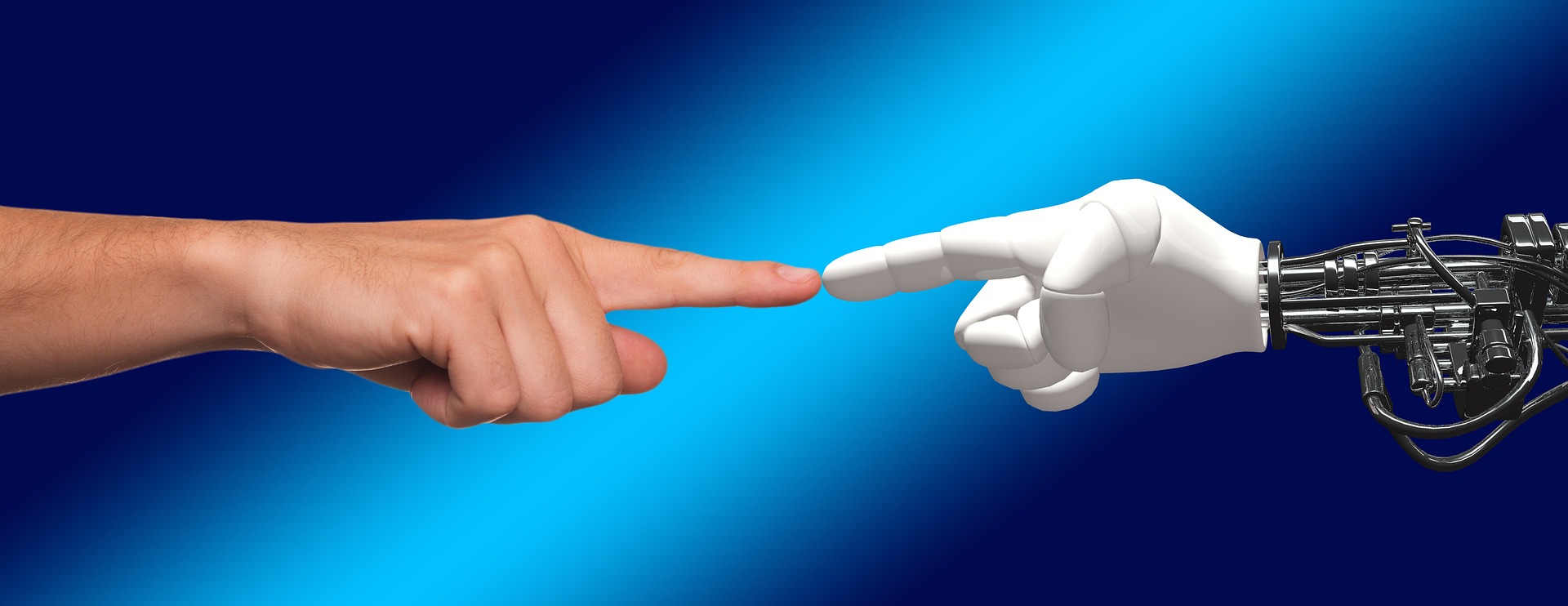The Facts
Applicant applies for patent for invention invented by AI system
An applicant submitted a patent application for a new food container that is easy for robots to grasp and stack.
The patent application required that the applicant provide the name of the inventor of this invention.
The applicant named the artificial intelligence system that autonomously generated the invention, as the inventor.
The applicant was the owner of the AI system and the operator of the computer on which it operates. He also wrote the programs used by the AI system and owned the copyright in its source code.
Deputy Commissioner of Patents rejects patent application and applicant seeks judicial review
The Deputy Commissioner of Patents rejected the applicant’s patent application on the basis that an AI system cannot be an inventor.
The applicant sought judicial review of the Deputy Commissioner’s decision.
The question for determination by the Federal Court of Australia was whether under the Commonwealth Patents Act an AI system could be an inventor.














Expert commentary on the court's decision
Federal Court of Australia decides in favour of applicant
In the case of Thaler v Commissioner of Patents [2021] FCA 879, Justice Beach of the Federal Court of Australia ruled in favour of the applicant, Dr Stephen Thaler.
His Honour acknowledged that an applicant for a patent and the grantee of that patent must be a human. However, he also found that an AI system can be named as the inventor of the invention which is the subject of the patent application.
Justice Beach ordered that the determination of the Deputy Commissioner of Patents be set aside and that the patent application be remitted to the Deputy Commissioner to be redetermined in accordance with the court’s findings.
Commissioner confuses question of who can be patentee with who can be inventor
Justice Beach found that the Deputy Commissioner had confused the question of ownership and control of a patentable invention with the question of who can be an inventor.
His Honour agreed that it is correct that only a human or legal person can be an owner or controller of a patent.
However, he also found that just because a machine cannot own a patent, it does not mean that a machine cannot be an inventor.
Definition of “inventor” includes an AI system
Justice Beach agreed with Dr Thaler that the word “inventor” is an agent noun, meaning that an inventor can by definition be a person or a thing.
Additionally, His Honour found that the Deputy Commissioner had read limitations and qualifications into the definition of “inventor” that were not required in order to give effect to the purpose of the Act.
Further, His Honour stated that much of the Deputy Commissioner’s argument relied on dictionary definitions of the word “inventor”, whereas “more is required… than mere resort to old millennium usages of that word”.
His Honour said that generally, dictionaries are not a substitute for statutory interpretation and that the meaning of words may vary greatly according to circumstances and the time in which they are used.
Narrow interpretation of “inventor” could inhibit technological innovation
Justice Beach noted that if the Deputy Commissioner’s arguments were correct, the effect would be that a patentable invention from a non-human inventor could not be patented.
His Honour said that it would be undesirable to preclude this class of otherwise patentable inventions when this exclusion is not apparent from the express words in the Act.
Further, such exclusion would inhibit innovation and potentially cause owners of creative computers to choose to protect their inventions as trade secrets without public disclosure.
His Honour said that this result would be inconsistent with the object of the Act, which is “to provide a patent system in Australia that promotes economic wellbeing through technological innovation and the transfer and dissemination of technology”.
Narrow interpretation of “inventor” could lead to uncertainty
Justice Beach also observed that if an AI system cannot be the inventor of its output, this could create great uncertainty:
Owner of AI system also owns what it invents
Justice Beach found that, contrary to the Commissioner’s argument, sections 15(1)(b) and (c) were still workable even if the inventor is an AI system.
His Honour recognised that as the owner, programmer and operator of DABUS, Dr Thaler was also the owner of DABUS’s invention under established principles of property law.
Further, if someone took DABUS’s invention without Dr Thaler’s consent and applied for a patent, Dr Thaler would be entitled as the owner of the invention to an assignment of the patent from the thief.
Accordingly, Justice Beach concluded that section 15(1)(b) of the Act does not necessarily require an assignment from the inventor at all.
Patent for invention by AI system can be granted to owner of AI system
According to Justice Beach, although DABUS is not a legal person and cannot legally assign its invention, it did not follow that Dr Thaler could not derive title from DABUS under section 15(1)(c).
The parties accepted that the ordinary meaning of “derives” includes “to receive or obtain from a source or origin, to get, gain or obtain, and emanating or arising from”.
In Justice Beach’s view, it could be said that Dr Thaler is a person who “derives title from the inventor, DABUS, by reason of his possession of DABUS, his ownership of the copyright in DABUS’ source code, and his ownership and possession of the computer on which it resides”.
Permitting AI systems to be inventors will not break patent system
The possibility was raised that allowing AI systems to be inventors could lead to congestion in the patent system, because computer systems can generate large volumes of random and variable outputs.
This could work against the object of the Act, as patents could be churned out at a rate never seen before, increasing the threshold for inventiveness.
This could also potentially make it harder for human inventors to secure patent rights.
Further, it can be difficult to determine whether an advance is truly “inventive” or not, because most AI systems have a black box which does not allow the owner fully to recreate the steps taken for an AI to generate an output.
Justice Beach suggested that these concerns were merely “phantoms”, since only a legal person can make a patent application, be granted a patent and have title and control over a patented invention.
AI systems and copyright law
The Commissioner also relied on an analogy to the position in copyright, where intellectual property rights must originate by the application of human intellectual effort.
Justice Beach did not find this analogy of any assistance to the Commissioner’s case.
However, it is interesting to speculate whether this aspect of copyright law will be revisited in the future.
Artists who employ AI technology in their works already see AIs as important contributors or co-authors of their works.
If AIs are given copyright, then artists who potentially use AI software to create their works, for example a DJ using AI music software, could be exposed to a copyright claim.
Additionally, copyright lasts for 70 years after the creator’s death. Since an AI is not human, its copyright could essentially last indefinitely. This would have the potential to reduce innovation significantly.
Australia first country to allow non-human inventors
The case of Thaler v Commissioner of Patents has made Australia the first country to approve non-human inventors, a view that has been rejected in United States, United Kingdom and European Union.
Ethical question raised in allowing non-human inventors
This case raises the huge ethical question of whether AI is actually capable of independent creation, and if so, is it entitled to its own rights?
Despite Justice Beach’s contention that AI systems are becoming more autonomous, many commentators believe that this is because the human role is still essential in the creative or inventive process, and so the human should be named as the inventor.
Appeals court decision to be handed down shortly
In August 2021 the Commissioner lodged an appeal against the Federal Court’s decision. The appeal was heard before an expanded Full Bench of the Federal Court of Australia on 9 February 2022.
Comprised of a five-judge panel rather than the usual three judges, the bench reserved its judgement, meaning that it will give its decision in writing at a later date.
If Justice Beach’s decision is upheld, there will be a minefield new class of patents for inventions created by non-humans. This will have huge commercial implications.
It will also lead to the potential for more overseas patent applications, as Australia will be seen as a favourable filing destination.
[Editor’s note: In April 2022, the Full Court of the Federal Court overturned Justice Beach’s decision, in Commissioner of Patents v Thaler [2022] FCAFC 62. Following this, in May 2022 it was reported that Dr Thaler had sought special leave to appeal to the High Court. The case continues to have enormous significance for intellectual property in the future, both in Australia and overseas.]
Artificial intelligence and the law
Please see the following articles for further information on artificial intelligence and the law.
Algorithms, artificial intelligence, automated systems and the law
Predicting recidivism – the questionable role of algorithms in the criminal justice system
Guilty or not guilty – could computers replace judges in a court of law?
Inventiveness of ChatGPT poses risk of defamation
Can I claim copyright if I write a novel or research paper using generative AI?
New laws coming to curtail artificial intelligence (AI)